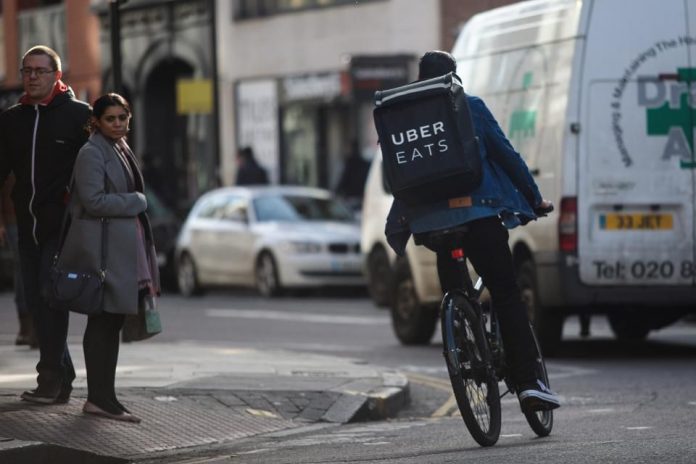by Andria Cheng, Forbes, JUNE 26, 2018
Millennials Are Ordering More Food Delivery, But Are They Killing The Kitchen, Too?
Time-starved and convenience-seeking consumers — yes, again led by millennials — are showing a growing appetite for having food delivered at home, a bright spot in an otherwise lackluster restaurant industry. But could this behavior sound the death knell for home-cooked meals and kitchens?
UBS forecast delivery sales could rise an annual average of more than 20% to $365 billion worldwide by 2030, from $35 billion.
“The expertise currently resides in-house (to cook, as it once did to produce a pair of trousers) could potentially be rendered immaterial, or the expertise might shrink to preparing breakfast or cups of tea, much like sewing has arguably shrunk to basic clothing repairs carried out at home. … We could be at the first stage of industrializing meal production and delivery.”
If kitchens become increasingly “underutilized,” the bigger implications could even include more homes being designed without kitchens, or with much smaller ones. Meanwhile, more apartments and living arrangements such as WeWork’s WeLive could expand to respond to the desires of millennials who want to live alone but also benefit from shared accommodations and services such as a communal kitchen.
“For the 25% plus of single-person households in the U.S. and U.K., the economic benefits of sharing rather than owning an underutilized kitchen are likely to become more and more apparent,” UBS said.
A Mintel study showed the number of U.S. adults who are considered “cooking enthusiasts” rose each year from 2014 to 2017, to about 115 million, from 98 million. Almost four-fifths of Americans overall said they cooked from scratch one to two times per week in 2017, compared with 70% in 2015. As for millennials, Mintel said its study showed 80% cooked from scratch at least occasionally in 2017, up from 67% in 2015.
Even though they want more convenience and are willing to let go of the more time-consuming meal prep, NPD says that as these millennials start their own households and have kids, they’re still interested in fresh food and want some sort of food prep involvement.
The Mintel study also echoed the point that what qualifies as cooking a meal varies among consumers. More men and younger adults, for instance, feel like they’ve cooked a meal when they’ve used a microwave or a toaster oven, Mintel said.
Analysis: This article does a great job exploring the possible outcomes of how we may cook and eat in the future. On one side of the argument, it’s estimated that home-cooked meals will be outsourced. On the other side of the argument, consumers are craving certain aspects of cooking and may even become more invested than ever before.




